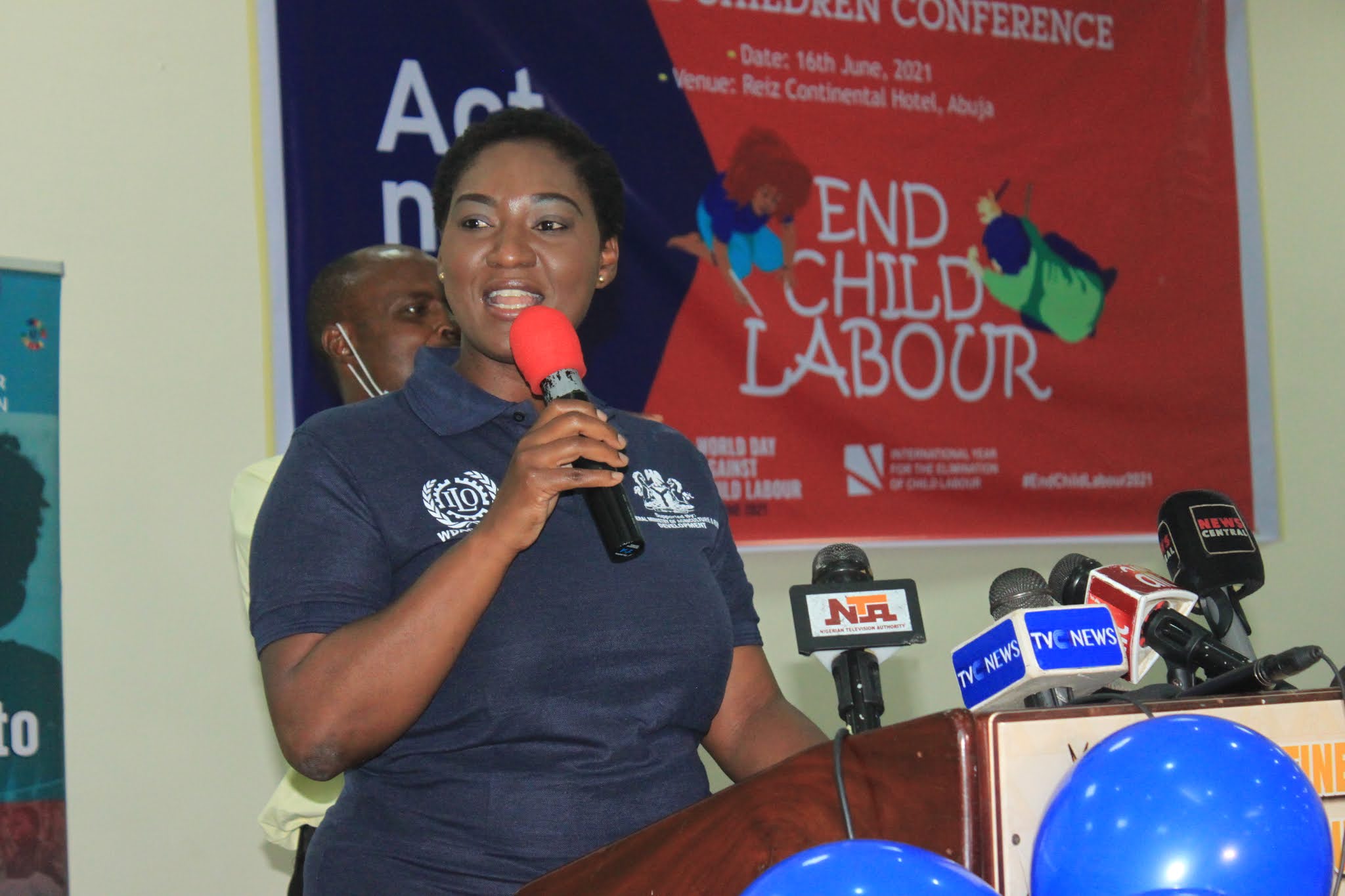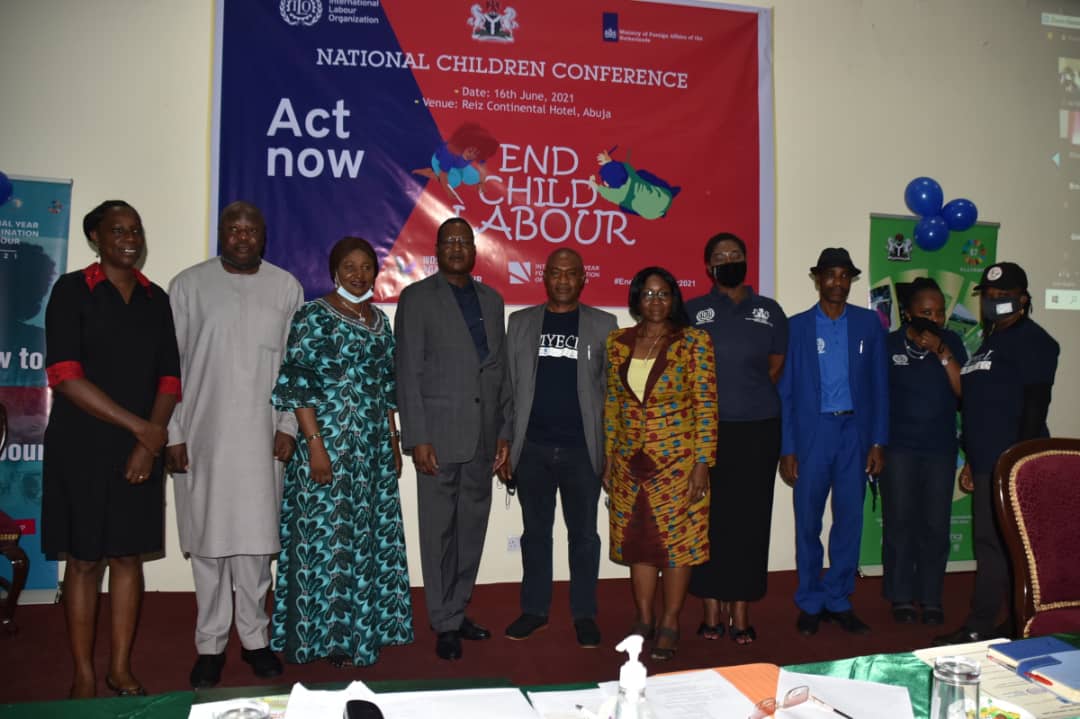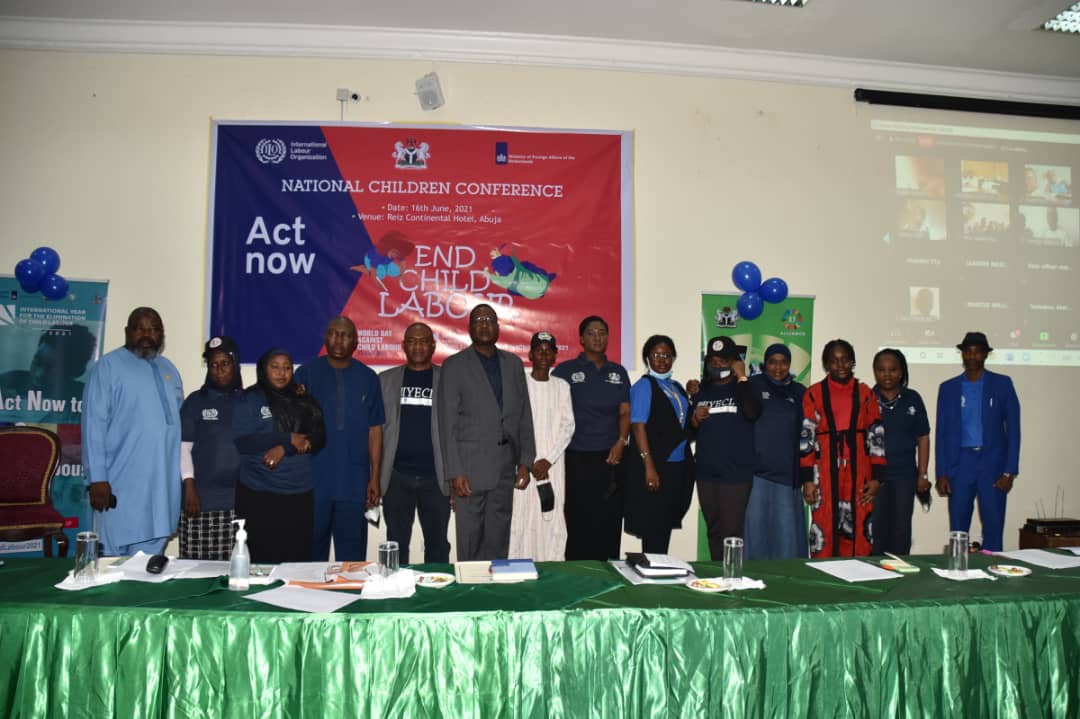Nigeria News
‘Consume Responsibly’, ILO Urges Gold, Cocoa Consumers In Nigeria

The International Labour Organization (ILO) has called on gold users and consumers of cocoa products in Nigeria to be mindful of the impact of their patronage on the use of children for work on gold mines and cocoa farms, as well as the consequences on social stability and collective development.
The ILO Country Director for Nigeria, Ghana, Liberia, Sierra Leone, and Liaison Office for ECOWAS, Vanessa Phala, shared this concern during the inaugural National Children’s Conference on the Elimination of Child Labour (NCCECL) themed “Act Now: End Child Labour” at the Reiz Continental Hotel, in Abuja on Wednesday, June 16, 2021.
During the event which marked Nigeria’s participation in the ILO “Week of Action” commemorating this year’s World Day against Child Labour (WDACL), Director Phala warned that if Nigeria does not quicken its pace to eliminate child labour, the country may not succeed in meeting the Sustainable Development Goal (SDG) Target 8.7 which seeks the elimination of all forms of child labour by 2025.
“Let us ask ourselves – are we empowering the unfair use of children in cocoa farms, on gold mines, at home, in factories, in marketplaces, and in society generally?… are we a part of the cure or the disease?’’, Phala asked.
A joint ILO – United Nations Children’s Fund (UNICEF) research released on 10 June puts the number of children trapped in child labour in 2020 at 160 million, with 92 million in Africa – a surge from 152 million in 2016, signalling a potential rise over a short period, owing to the economic consequences of the Covid-19 pandemic.
The ILO’s ACCEL Africa Project is focused on accelerating action against child labour in the cocoa and Artisanal Gold Mining (ASGM) supply chains in Ondo and Niger states specifically where child labour is prevalent through production and supply chains.

This debut NCCECL was coordinated by members of the Nigerian Children’s Parliament, children from public and private schools across Nigeria, ex-child labour victims, and children currently trapped in labour, with support from the ILO and its tripartite partners – the Nigeria Employer’s Consultative Association, The Nigeria Labour Congress, Trade Union Congress, Federal Ministry of Labour and Employment, Federal Ministry of Mines and Steel Development, Federal Ministry of Agriculture and Rural Development, the Federal Ministry of Women Affairs and Social Development and other agencies of government.
In a communique presented by Rt. Hon Chukwuma Chioma, Speaker of the FCT Children’s Parliament on behalf of Nigerian children represented at the event and connected online via Zoom, Facebook and YouTube from around the country, the concerns of the National Children’s Conference cover:
• Behaviour change
• The ratification of ILO Convention 189 on Domestic Work
• Domestication of Recommendation 201 into national laws to protect children from servitude
• Implementation of the Action Pledges by ILO’s tripartite partners
• Immediate passage of the Labour Standard Bill which criminalizes the List of Hazardous Child Labour
• Intense and inclusive public enlightenment
• Upward review of the national minimum wage
• Inclusive, compulsory, and universal basic education for every Nigerian child
• Emergency response mechanisms
• Provision of Safe Shelters in each of Nigeria’s 774 Local Government Areas
• Review of the child adoption policy in consideration of the high number of orphans
• The domestication and full implementation of the Child Rights Act 2003 by the remaining 11 states.

Speaking on behalf of the Federal Government, the Permanent Secretary of the Ministry of Labour and Employment, Dr Yerima Tarfa responded to the concerns by advocating climate action, increased reporting of child labour cases to law enforcement agencies, and the domestication/implementation of the Child Rights Act 2003 in every state.
Yerima also cited the Labour Ministry’s planned review of Nigeria’s labour laws, an increase in the number of labour officers and factory officers to monitor workspaces and schools,.
He also noted the federal government’s provision of free basic education, school feeding programme and other poverty alleviation schemes as some of the government’s efforts to eliminate child labour, while stressing the need to review cultural considerations limiting population management.












